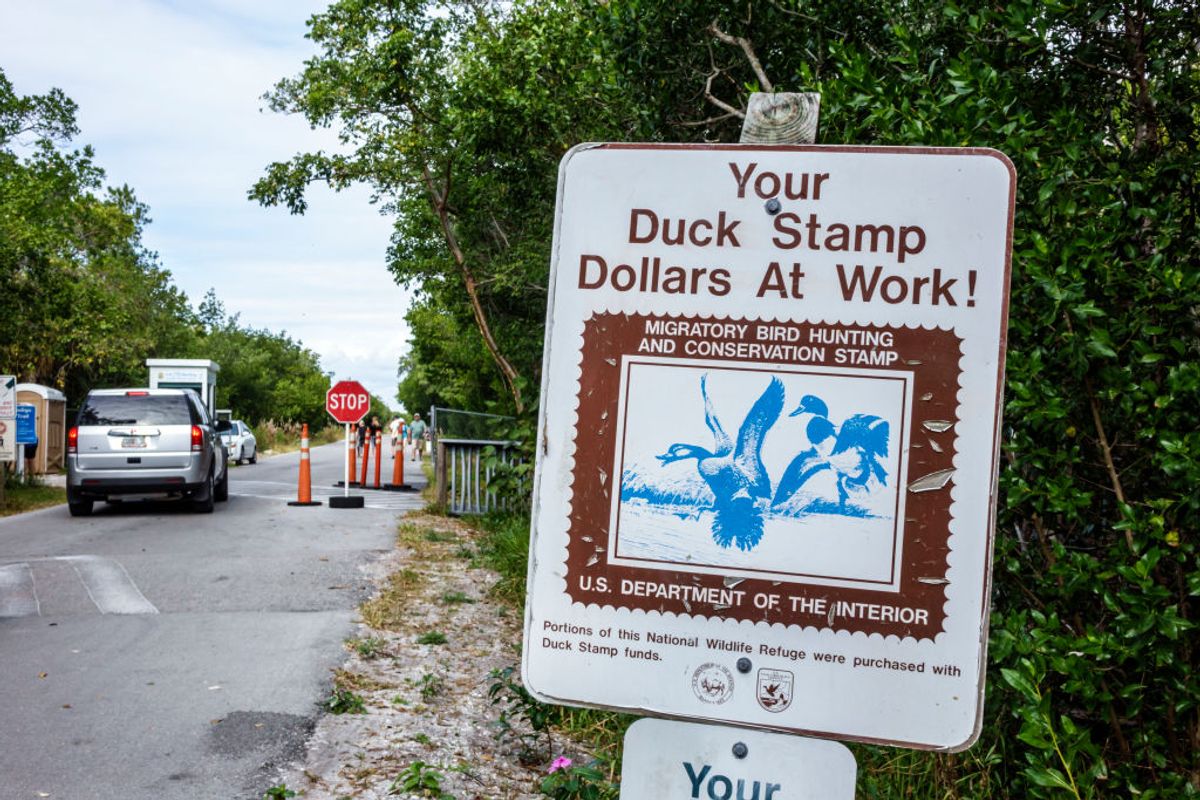A popular twitter account, A Crime a Day, tweets every day about an obscure federal law in the U.S. One tweet focused on the longtime Federal Duck Stamp Art Contest. As described by the U.S. Fish and Wildlife Department:
The Federal Duck Stamp Art Contest is one of the most successful conservation programs in our nation's history. Duck Stamps are vital tools for wetland conservation, with ninety-eight cents out of every dollar spent on Duck Stamps going directly to wetland habitat protection. Since its inception in 1934, sales of the Duck Stamp have generated over $1.1 billion that has conserved more than 6 million acres of wetland habitat for birds and other wildlife.
In response to an alleged submission whose design was dominated by shark eating various waterfowl, A Crime A Day tweeted in early 2023 that it was "a federal crime to enter a design in the Federal Duck Stamp Art Contest if waterfowl are not the dominant feature of the design."
This is incorrect. It is not a crime to enter a design in which eligible waterfowl are not dominant in the Federal Duck Stamp Art Contest. But it is against the contest's regulations, as explained in 50 CFR § 91.14:
A live portrayal of any bird(s) of the five or fewer identified eligible waterfowl species must be the dominant feature of the design. The design may depict more than one of the eligible species. The judges' overall mandate is to select the best design that will make an interesting, useful, and attractive duck stamp that will be accepted and prized by hunters, stamp collectors, conservationists, and others.
That regulation does not define a crime — it merely states that entries in which "eligible waterfowl species" are not "the dominant feature of the design" will be disqualified. The assertion of criminal penalties comes from incorrectly invoking two parts of the U.S. Criminal Code.
These criminal codes have nothing to do with the Federal Duck Stamp Art Contest: 16 U.S. Code § 718a prohibits taking migratory waterfowl without "a valid Migratory Bird Hunting and Conservation Stamp," while 16 U.S. Code § 707a imposes penalties on people who violate provisions of the Migratory Bird Treaty.
Because breaking a contest regulation, even a federal contest, is not the same as committing a federal crime, we rate the assertion as "False."

